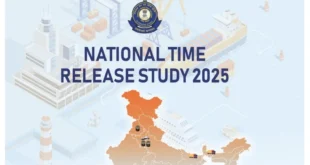Interim Budget 2019 has sought to make amends for all the wrongs of almost five years of the Narendra Modi government. For example, the debilitating impact of demonetisation on the informal sector that employs nearly 90% of the workforce had long been suspected on the basis of anecdotal evidence. The findings of the National Sample Survey Office’s surveys — leaked last week after they were approved by the National Statistical Commission — show that unemployment rose to a 45-year high in the demonetisation year. The note ban, these findings suggest, has caused severe distress. Some social security To reach out to the segment worst hit, the Interim Budget announced the Pradhan Mantri Shram Yogi Mandhan for unorganised sector workers with monthly incomes of less than Rs. 15,000. With a token allocation of Rs. 500 crore, a direct benefit transfer of Rs. 3,000 a month as old-age pension has been proposed. Pensioners will receive the payments once they attain the age of 60. To be eligible, workers will have to start contributing Rs. 55 every month from the age of 18. Those over 29 will have to contribute Rs. 100 every month. The government will match these contributions. The scheme targets workers in sectors such as leather, handloom and construction which took a body blow from demonetisation. A possible inference can be that the Modi government does not expect — nor is it promising — upward mobility for this class to better quality jobs over the span of their working lives. For the farmer The Modi government’s tenure has been marked by acute rural distress. Among the reasons to which it can be ascribed are legacy farm sector policy issues which no government has addressed in a meaningful way. In this, Mr. Modi’s government has been no different. The minimum support prices and procurement policies it followed were more ineffective than is normal. In fact these policies reversed some of the corrections made by the previous United Progressive Alliance (UPA) government in the terms of trade for agriculture. The Modi government has also failed to respond adequately to the back-to-back droughts of 2014 and 2015. The import-export policy errors it made added to the gluts caused by bumper harvests in 2017 and 2018, which further depressed market prices and increased farmer losses. The non-farming classes did profit to an extent from these policy failures. Falling food prices spelt losses for farmers but benefited kitchen budgets in middle-class households that had suffered from severe inflation under the UPA. The Interim Budget offers farmers a peace offering in the form of income support of Rs. 6,000 a year, or Rs. 500 a month, financed fully by the Central government. The Pradhan Mantri Kisan Samman Nidhi (PM-KISAN) — inspired by Telangana’s Rythu Bandhu — targets only landed farmers who own up to 2 hectares, while bypassing landless cultivators, the most vulnerable class in the agriculture sector. In handing out these fiscal giveaways, Mr. Modi has bitten the bullet by reaching out to a class of voters who are traditionally not a constituency of the BJP. But these giveaways suffer from the same populist, rather than reformist, approach seen earlier with demonetisation which was planned as a big bang intervention to downsize the black economy, and the design and implementation of the Goods and Services Tax (GST). These measures, which were not thought through properly, led to perverse consequences.
Source : https://www.thehindu.com/todays-paper/tp-opinion/an-appeasement-budget/article26179593.ece
 Chinmaya IAS Academy – Current Affairs Chinmaya IAS Academy – Current Affairs
Chinmaya IAS Academy – Current Affairs Chinmaya IAS Academy – Current Affairs


